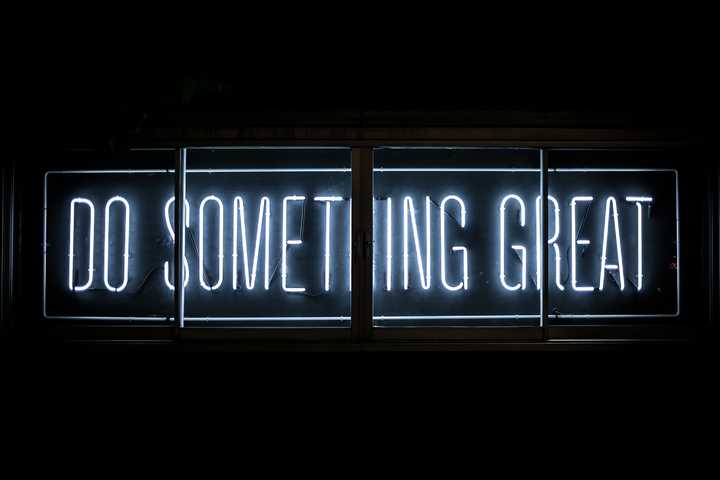Because your culture is how your company makes decisions when you’re not there. It’s the set of assumptions your employees use to resolve the problems they face every day. It’s how they behave when no one is looking.
- Ben Horowitz, What you do is who you are
The success of a company is the result of the collective behavior of its employees. A company can still be quite successful (up to a point) even if its employees behave horribly – Bernard L. Madoff Investment Securities. So, good behavior contributes to but doesn’t guarantee success. But bad behavior guarantees demise sooner or later.
It is very difficult to control the behavior of an individual let alone a collective. So, every company comes up with a set of values to guide how its employees should behave. But publishing the values publicly clearly doesn’t work. I mean Enron had integrity as one of its values. But we see successful companies list their values. So, it must be working! Well, listing the values and behaving with strict adherence to the values are two very different things. One’s theory, the other’s practice.
When a group of people behave consistently, then you have created a culture. How then do we get a group of people to behave consistently?
In this regard, I turn to Danny Meyer, the Shake Shack and Eleven Madison Park owner who's renowned for his obsession with customer satisfaction, for his salt shaker theory.
Your staff and your guests are always moving your saltshaker off center. That’s their job. It is the job of life. It’s the law of entropy! Until you understand that, you’re going to get pissed off every time someone moves the saltshaker off center. It is not your job to get upset.
Your job is just to move the shaker back each time and let them know exactly what you stand for. Let them know what excellence looks like to you. And if you’re ever willing to let them decide where the center is, then I want you to give them the keys to the store. Just give away the fuckin’ restaurant!
Wherever your center lies, know it, name it, stick to it, and believe in it. Everyone who works with you will know what matters to you and will respect and appreciate your unwavering values. Your inner beliefs about business will guide you through the tough times. It’s good to be open to fresh approaches to solving problems. But, when you cede your core values to someone else, it’s time to quit.
Here's the key takeaway: You must be unwavering in enforcing values that matter to you. The moment you cede, you should quit.
I'll write more about how to build the culture you want in a later installment.
For now, I want to explore six values I believe are crucial for an engineering organization to perform at its peak:
- Curiosity
- Urgency & focus
- Grit
- Radical candor & transparency
- Autonomy & accountability
- Trust
This week, I'll cover the first three because I've got a lot to cover. Let's jump right in!
Curiosity
Spend each day trying to be a little wiser than you were when you woke up. Day by day, and at the end of the day-if you live long enough-like most people, you will get out of life what you deserve.
- Charles T. Munger, Poor Charlie's Almanack
If you invested $10,000 in an S&P 500 index earning 6% per year and forgot about it for 20 years (without saving another penny), you'd end up with $32,071. If you forgot about it for another 20 years, you'd end up with $102,857. The most powerful phenomenon in the world is compound interest. And fortunately, this also applies to knowledge.
But, unlike interest on your money, you have to seek knowledge to acquire it. Once you do, it does accumulate and the benefits are compounded because it's easier for you to grasp new concepts built on knowledge you already have.
My dad once said to me:
疑惑深,智慧深;疑惑浅,智慧浅
Deep doubts, deep wisdom; small doubts, little wisdom
To gain wisdom and knowledge, you must be ever curious, seeking and learning. Why is this important for a software engineer?
The software engineering field evolves so quickly that companies that fail to keep up will eventually be replaced by companies that can. Since a company is nothing but the collective intiative of a group of individuals, whether a company can keep up with the tides of change or not hinges on each individual's curiosity.
Recognizing the value of curiosity, in 2004, a Highway 101 billboard in Silicon Valley posted the following:
{first 10-digit prime found in consecutive digits of e}.com
A handful of people who figured this out (The answer was 7427466391.com. And don't bother clicking. It's a dead link.) were invited to submit a resume to Google. This also turned out to be a brilliant marketing ploy. We're still talking about this 16 years later!
Curiosity is what makes you ask questions. And questions are what gain you knowledge.
But you must start with curiosity. Without curiosity, you won't have a desire to learn. Then, you'll find it very difficult to learn anything at all. We're all naturally curious about some things. These things usually lie within our areas of interest.
In essence, knowledge is at the intersection of curiosity and interest.
We were born curious. When we were kids, "why" is the most frequently used word in our vocabulary. But over time, our pride extinguished our once burning desire to know. So, we need to rekindle our curiosity.
The best way I've found is to simply read broadly. Literally anything that piques your interest. Because once you're in your area of interest, you may just find the curiosity to learn more. If you like whiskey, read an article about whiskey. See where that takes you. Not too far? Drop it. Switch to another area of interest. Keep going until you find something you can't stop learning about.
There are many ways to explore your interests. Read a tweet. A tweet storm. An article. A postmortem. Subscribe to my newsletter or an engineering blog. Watch Garry Tan's Vlog. Listen to The Knowledge Project. Listen to The Twenty Minute VC. Anything! Just do it.
Your goal is to be a T-shaped engineer. That is, an engineer with broad knowledge across disciplines and deep skills in your areas of expertise.
Your deep skills will stem from your curiosity. Because your curiosity drives you to dig deep into a topic. You just can't stop until you get it. In-depth knowledge tend to come from lengthy research on a topic. Read a research paper. Read essays from different points of view. Read a book. Do a tutorial online. Build a project. Write an essay.
As you develop your curiosity, the company stands to benefit remarkably. Why? Because you have the courage to start asking why. Why are things done this way? Why can't rockets be reused? Why can't cars run on batteries? These sort of questions can lead to breakthroughs. Needless to say, in the process, your value to the company increases accordingly.
Urgency and focus
Momentum creates inertia. Momentum is defined as mass in motion. It is the product of a mass and its velocity. So, if a car weighs 4,000lbs and is moving at 35mph or mi/h, we say the car's momentum is
4,000lbs x 35mi/h = 140,000lbsmi/h
Don't worry. You won't be quizzed on this later. But I needed to explain momentum so I can explain inertia. Inertia is what we've come across numerous times in our lives.
An object at rest tends to stay at rest, and an object in motion tends to stay in motion.
- Isaac Newton, Newton's first law of motion
The Empire State Building was built in 1 year and 1 month. The first prototype for Javascript was written in 10 days. Amazon Prime was launched in just 6 weeks on February 2, 2005.
Meanwhile, the new Van Ness bus lane in San Francisco proposed in 2001 was delayed to 2021.
You may find it hard to believe but inertia applies to projects too. If we replaced "object" with "project" in Newton's first law of motion, it rings just as true.
A project at rest tends to stay at rest, and a project in motion tends to stay in motion
But for a project to gain momentum, you must act with urgency. Again, the law of physics applies here. The force (or momentum) required to move a car at 35mph is the same force required to accelerate the car from 0mph to 35mph. To get a project off the ground, a team must work in concert with urgency to get every part of the project moving in the same direction. Without a sense of urgency, even a delay in one part of the project can cause the project to come to a halt. And urgency is a behavior that has to be instilled as part of the culture.
Urgency doesn't mean rushing through a task at the expense of quality. It means you don't let any task linger. You don't accept words like "soon", "later", or "next week". Rather, you demand a commitment to a delivery date from everyone your task depends on. Despite risking being disliked by your lunch buddy, you hold him accountable to his commitments.
You are respected for the values you stand for. Not for your likability.
But there's a real danger of forgetting the other component in momentum - the direction. Most organizations today get that we need to have a sense of urgency. We need to be firing on all cylinders. So, we embark on 6 different projects at the same time. We think we're moving fast as we shoot for this.
 Source: Why limiting work in progress works - Will Larson
Source: Why limiting work in progress works - Will Larson
But the end result is not quite what you'd expect. You'd see more projects started, but the finished projects remain roughly below the number of developers you have.
 Source: Why limiting work in progress works - Will Larson
Source: Why limiting work in progress works - Will Larson
So, what you need is focus. Focus teams on a handful of initiatives. You'll always have more ideas than projects. When you choose to start all of them, you're sidestepping the hard decision of prioritizing the projects. The end result is a disaster where nothing gets delivered despite everyone working hard.
By limiting the work (projects) in progress, you improve your lead time - the time from your first commit to successful deployment to production. You actually deliver value faster!
 Source: Deliver software faster by managing work in progress - SoundCloud
Source: Deliver software faster by managing work in progress - SoundCloud
PluralSight even goes as far as limiting their planning horizon. That is, not only do they limit tasks in their Doing column, they also limit the items in the To Do column to just work for the next week or two. Not all their teams do this. But they are encouraged to do so.
Extraordinary outcomes tend to follow the power law distribution. So, focus your bets and execute on your bets with urgency.
Grit
I have not failed 10,000 times — I’ve successfully found 10,000 ways that will not work.
- Thomas Edison
The man who's best known as the inventor of the light bulb was also a massive faliure. In 1869, Thomas Edison developed an automatic vote recorder that calculated the tally automatically. It would save hours tallying the votes. Excited, he took the vote recorder to Washington only to be told by the chairman of a Congress committee:
If there is any invention on earth that we don't want down here, that is it.
These days we refer to this as a lack of product market fit. Edison also invented an electric pen, a handheld needle that moved up and down as you write. It didn't work because it was too noisy, too heavy, and the batteries were basically chemical solutions in a jar. Late 1887, he invented the talking doll, a pull-string doll with a smaller version of his phonograph. It wasn't until March 1890 before the dolls hit the market. But consumers complained they were too fragile, broke easily, the voice grew faint too quickly, and the voice was "just ghastly". By April, Edison pulled them off the market and closed shop in 1891.
But before the light bulb, Edison invented the tin foil phonograph in 1877. It took him a decade to develop a new phonograph using a wax cylinder. Then, he formed Edison Phonograph Co to bring the machine to market. There were plenty of trial and error. But had he given up, the world wouldn't have seen gramophones, cassette players, CD and DVD players, Netflix, iPods, or even iPhones!
It was his grit that drove him to such life-changing inventions.
Grit is passion and perseverance for very long-term goals. Grit is having stamina. Grit is sticking with your future, day in, day out, not just for the week, not just for the month, but for years, and working really hard to make that future a reality. Grit is living life like it's a marathon, not a sprint.
- Angela Lee Duckworth, Grit: The power of passion and perseverence
Part of the fun of engineering is you don't always run into the same problems. In fact, you often get to work on problems you haven't seen before (though may have been solved elsewhere). But the solutions may not be obvious or straightforward. But if you are determined and resourceful enough, you'll find your way. Instead of throwing your hands up and proclaim "I don't know.", you eagerly look for what's out there. How have others tackled a similar problem? Can you apply the same technique? Can you try it out quickly? If your team member can't come up with a solution, do you put your heads together and brainstorm? At the eleventh hour, when nothing's working, do you say "Alright, we gave it our best." or do you ask "What else haven't we tried?" or "What did we miss?" or "What if we tried...?"
There is a subtle but very important difference in our perception that affects how we behave in the face of adversity. Now, at our workplace, adversity is not as traumatic as a life threatening event, but it can still be quite stressful. George Bonano, a clinical psychologist at Columbia University's Teachers College found one of the central element of resilience or grit is perception.
Do you conceptualize an event as traumatic, or as an opportunity to learn and grow?
He further discovered that stressful or traumatic events don't have much predictive power on outcomes. "It's only predictive if there's a negative response."
In other words, implicit in grit is optimism. Knowing there's a light at the end of the tunnel despite the trail of failures left behind. Because the next attempt might just work. Because the gold might just be an inch away from where you're digging. Because if you don't, who will? This is how you build up your grit. Your resilience. Unrelenting at charging forward towards your goal. Apparently, relentless has another name.
It's hard to beat a person who never gives up.
- Babe Ruth

